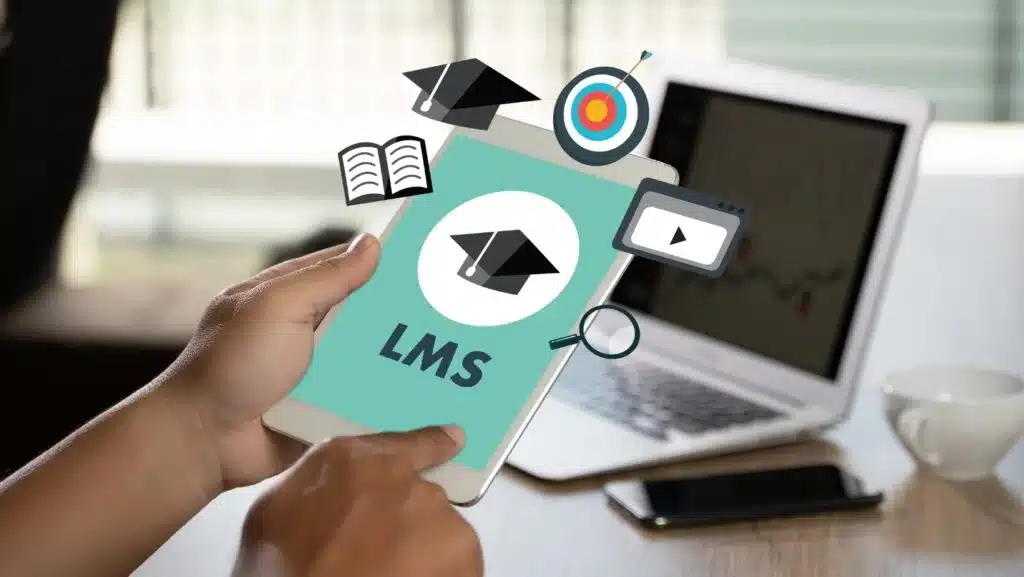A software program called a learning management system, or LMS assists educational institutions in delivering, monitoring, and managing every part of the learning process. It can be utilized to create and distribute online courses, monitor student growth, and provide educators, learners, and administrators with a forum for debate.
There are many benefits to using an LMS in education. For students, an LMS can provide a flexible and convenient way to learn. They can access course materials and assignments from anywhere, and they can collaborate with classmates and instructors online. For teachers, an LMS can help them save time and resources. They can create and deliver courses more efficiently, and they can track student progress more easily. For administrators, an LMS can provide a centralized view of all student data. This can help them make better decisions about curriculum, instruction, and resources.
Here are some of the reasons why all schools should use an LMS:
- Improved student learning: By giving them access to personalized learning paths, interactive activities, and collaboration opportunities, LMS can aid students in learning more efficiently.
- Ease of use: LMS is intended to be user-friendly for both teachers and students. This means that teachers can quickly and easily create and manage courses, and students can easily access and navigate the content.
- Security: LMS is typically very secure, which helps to protect student data. This is important for schools that need to comply with data privacy regulations.
- Customization: LMS can be customized to meet the specific needs of each school. This means that schools can choose the features that are most important to them and that they can tailor the LMS to their own teaching and learning styles.
- Increased efficiency: LMS can help teachers save time and resources by automating tasks such as grading, tracking attendance, and communicating with students.
- Enhanced communication: LMS can provide a central hub for communication between teachers, students, and administrators. This can help to improve collaboration and coordination.
- Improved reporting: LMS can provide detailed reports on student progress, which can help teachers and administrators to identify areas for improvement.
- Flexibility: LMS can be used to deliver instruction in a variety of formats, including synchronous, asynchronous, and blended learning. This enables schools to accommodate all students’ requirements, regardless of their preferred methods of learning.
- Accessibility: LMS can be accessed from any location that has an internet connection, making them accessible to students with disabilities or who reside in remote places.
- Cost-effectiveness: LMS can save schools money on textbooks, printing, and other resources. They can help to reduce the need for expensive personal training.
- Scalability: LMS can be scaled to fit the demands of any size school. This means that even small schools can benefit from the use of an LMS.
- Support: The majority of LMS suppliers give a number of support alternatives, such as training, technical help, and customer care. This can help schools to get the most out of their LMS investment.
- Personalized learning: LMS can help schools to personalize learning for each student. This can be accomplished by offering students alternative learning paths depending on their unique needs and interests.
- Adaptive learning: LMS can also be used to provide adaptive learning, where the content and difficulty of the material are adjusted to the individual student’s progress. Students may study more successfully and at their own pace as a result of this.
- Data-driven decision making: Schools may receive data from LMS that they can utilize to inform their decisions about teaching and learning. Children’s problem areas can be identified, developmental progress can be tracked, and it can be ensured that everyone is receiving the right care.
- Support for blended learning: Blended learning, which combines in-person education with online learning, can be supported by LMS. This can help schools to provide students with
- more flexibility and to meet the needs of all learners.
- Future-proofing: LMS is a valuable tool for schools that are looking to the future. As more and more learning moves online, LMS will become essential for schools that want to stay ahead of the curve.
- Increased engagement: LMS can help to increase student engagement by providing them with interactive content, such as quizzes, games, and simulations. This can help students to stay motivated and to learn more effectively.
Here are some instances of specialized LMS applications in education:
- To deliver online courses: For students who are unable to attend regular classrooms, LMS can be utilized to deliver online courses, which can be an appropriate option.
- To manage student progress: LMS can track student progress through assignments, quizzes, and exams. This data can be utilized to give pupils personalized feedback and pinpoint areas where they need more assistance.
- To provide a communication platform: LMS can provide a communication platform for teachers, students, and administrators. This can be used to share announcements, files, and messages.
- To collect data: LMS can collect data on student progress, which can be used to improve the learning experience.
Conclusion:
There are a few things that have been considered in order to establish an LMS at your school. The first step is to select an LMS that is appropriate for your institution. You should examine the features and costs of the various LMS available before choosing one. The second step is to instruct your instructors on how to use the LMS. This will ensure that they are able to use the system effectively to deliver instruction and track student progress, following the practices of top schools. Finally, you need to provide ongoing support for your teachers and students. As a result of this, they will utilize the LMS more effectively and efficiently.


